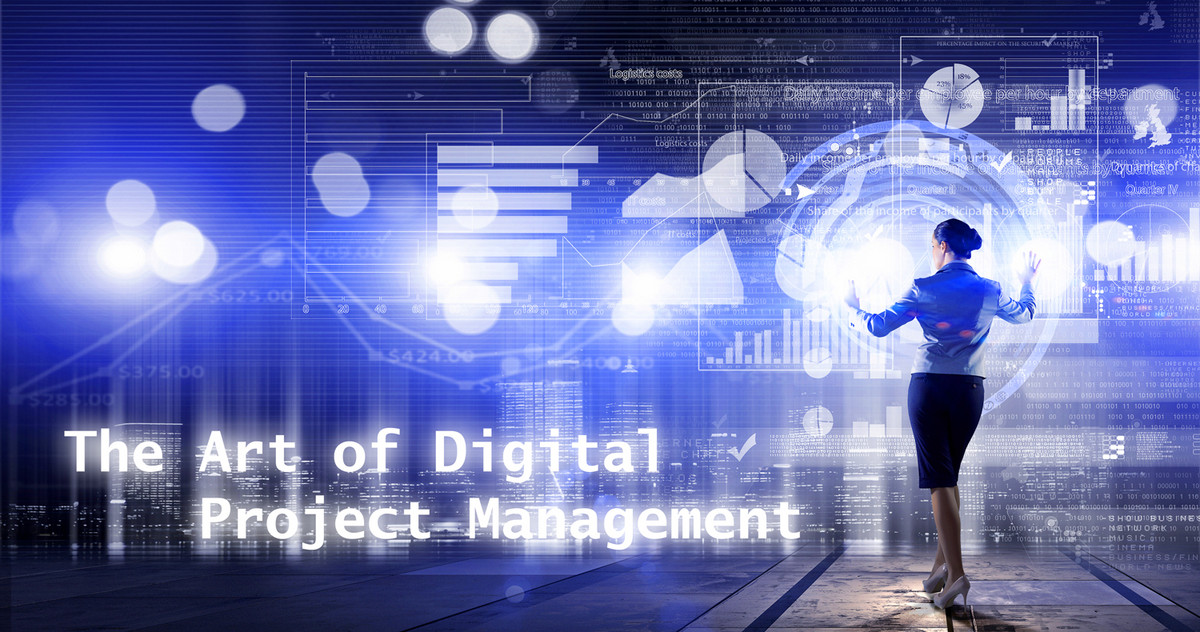Overview
Recommendations
Next Steps
Social media
What modern project managers must be able to do in the future
Over the past ten years, digitization has transformed the sphere of project management profoundly. At the same time, the share of project-based work within companies has been constantly increasing across all industries and functions: according to a forecast by the Project Management Institute (PMI), companies all over the world will need an additional 2.2 million project managers by 2027. But what skills will be the mark of a modern project manager in the future and what are the differences between digital and traditional project management? Martina Huemann, head of the Project Management Group at WU as well as the Academic Director of the Professional MBA in Project Management, talks about novel and traditional competences in project management and why the most important quality of a project manager in the digital age is to be a true leader.

Digital transformation has reached all business branches and has profoundly transformed also the way projects are managed. The sheer availability of new digital tools requires decision-makers to radically change their approach to project management. “The changes brought about by digitization are clearly visible in all industries and functions – in some spheres, their impact is substantial, in others the consequences are less pronounced,” Martina Huemann, an internationally recognized project management expert, says. She points to the construction industry as an example where the impact has been significant: in building projects, all contractors involved make use of digital process and data models, collectively referred to as Building Information Modeling or BIM, to jointly plan a project. “This way, a digital infrastructure is created that incorporates all data, from the start of planning to the maintenance stage, into a single system,” Martina Huemann explains. The result are synergistic effects of a whole new dimension. But which skills and expertise are required of project managers as digitization keeps advancing at this ever-increasing pace? Keep reading to find answers to the five key questions on this topic.

Modern software solutions, big data, social media, and innovative simulation technologies open up exciting new possibilities in digital project management. Project staff can get themselves up to speed regarding the project’s progress at the click of a button and external suppliers, partners, or sponsors can efficiently be integrated using holistic cloud solutions. What is more, project managers can use digital visualization tools to depict different scenarios, enabling them to implement potential changes at a very early stage and thus save a lot of resources. As a result, projects become more transparent for all parties involved and it becomes possible to streamline and simplify organizational processes. “Today’s project managers work hand in hand with little robots to which they can delegate many time-consuming tasks,” Martina Huemann sums up the status quo.
Leading is and will remain a core task for project managers, which is why it would in fact be much more fitting to refer to them as project leaders. Another thing that has not been impacted by the digital transformation is the fact that no project is like another.

Prof. Martina Huemann
While collaboration is certainly facilitated by digital platforms and tools, it is crucial for team members to get together for a face-to-face meeting at the start of a project. A project’s success always hinges on the personal relationships between the team members.
According to Martina Huemann, the differences are not so clear-cut. The established methods that are part of individual work packages will keep functioning the way they have so far even though the structural plan might look somewhat different compared to before. And while using digital tools is advisable for any project, it is not always necessary to purchase a lot of infrastructure to this end. “Digital collaboration has long become the standard also for small projects.” Successful cooperation, however, can often be achieved using open-source tools or conventional IT programs. In a nutshell, “Reduce to the max.”
Today, there is hardly any industry that does not expect their employees to have a good grasp of digital technologies. But for project managers, expectations are even higher. “Their job description will change drastically,” Martina Huemann says. She is convinced that they will have to act like true leaders even more than in the past because “leadership is such a crucial topic in project management, even more than in other spheres of a traditional company: this is the case because project teams are specifically put together for a set period of time to realize a given project – a true challenge for the project head, who has to make sure the project runs efficiently as soon as possible. For another thing, project managers hardly ever have employees directly reporting to them because projects are soften handled outside of the existing hierarchy and project managers are frequently met with a lot of resistance: sadly, a lot of times projects are still perceived as a threat to the existing and established hierarchy of a company.

This means that project managers have to be able to swiftly implement adequate structures and, at the same time, lead the project team in order to do their job successfully. A project’s success always depends on how professionally project managers can handle contradictions and conflicting interests and whether they are able to stay the course also when faced with strong headwinds.
There is a huge and ever-growing variety of digital tools in various fields. “They all have their advantages and disadvantages,” Martina Huemann says. Jira is used in a lot of companies, but also widely known tools such as MS Projects are still popular thanks to their modular applicability. Moreover, there are special tools suitable for agile methods, such as Zenhub or Taiga. Further examples that have proven very effective in practice are Clarizen, monday.com, and Celoxis.
For more information about the Professional MBA Project Management, please click here.